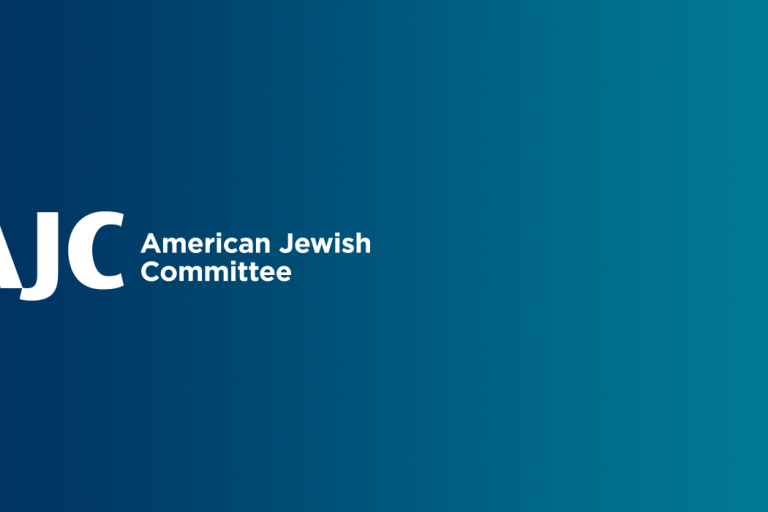July 9, 2020 — Jerusalem, Israel
This piece originally appeared in Juedische Allgemeine.
The Genesis story tells of how all creatures were created as couples except for the human being who was initially created singly and only subsequently becomes a couple. This would appear to be in order to emphasize the idea that male and female complete one another “and they shall be as one flesh” (Genesis 2:24.)
However, the Mishnah in Sanhedrin (4:5) indicates that the reasons the first human was created singly are to teach the infinite worth of every person; that each person is unique; and that all are equal (“so that none may say, my father was greater than yours”.) These ideas are rooted in the Biblical message that every human person is created in the Divine Image (Genesis 1:27.) Accordingly, any kind of negative prejudice toward another on the basis of how she or he was created, is in fact an anathema for Judaism.
Indeed, as far as prejudice based on skin color is concerned, the classic Torah text that would appear to be explicitly referring to such, was read in synagogues just the past week regarding the criticism of Moses by his siblings Miriam and Aaron, because he had married a Cushite woman Numbers 12:1.) As the instigator of the criticism, Miriam receives Divine punishment “and behold Miriam had become leprous as snow” (Numbers 12:10.)
Cush is the Biblical name for Ethiopia (see Esther 1:1) and is synonymous with black skinned people (see Jeremiah 13:23.) However, the sages interpreted the word Cushite in different ways, and Rashi (Rabbi Shlomo Yitzchaki) indicates that it means a beautiful woman. There are also different understandings as to exactly what it was that Aaron and Miriam were criticizing.
Nevertheless, medieval commentators such as Rabbi Avraham Ibn Ezra and Rabbi Shmuel ben Meir (Rashbam) understand the term “Cushite” in its plain sense, to refer to the color of her skin. Rabbi Yosef Ibn Caspi clarifies further that Miriam and Aaron criticized Moses for marrying a black woman, apparently seeing this as beneath Moses’ dignity. The Divine displeasure with their thoughts and speech is purposefully instructive, and the punishment of leprosy (as white as snow) particularly apposite. It is made clear to us that not only is prejudice against someone because of their color offensive to the Creator Himself, but that light color of skin is not at all necessarily advantageous.
However, the fact that racial prejudice should be an anathema, did not prevent Jews from falling victim to it, for different reasons - not least of all a misguided perception as to the meaning of Divine election.
The prophet Amos encountered this among the Israelites in the northern kingdom who thought that by virtue of their birth they were favored regardless of how they behaved.
In addition to highlighting the Divine demand for justice and righteousness, Amos berates the Israelites with the following words in the name of the Creator:- “behold you children Israel are just like the children of the Cushites (Ethiopians) to me. Did I not only take Israel out of the land of Egypt, but also the Philistines from Caftor and Aram from Kir” (9:7.) In other words, all people are dear to the Almighty regardless of the color of their skin. Moreover, the Almighty’s redeeming presence is to be found not only in Jewish history, but in the history of other nations as well.
Amos makes it clear that the very purpose of election, requires Israel precisely to behave in an exemplary moral fashion. Indeed, Deuteronomy (7:7) declares that Divine election has nothing to do with any inherent advantage, on the contrary; and Exodus (19:7) makes it clear that the purpose of Divine election of Israel is to “be a kingdom of priests and a holy nation”. The prophet Isaiah repeatedly highlights the purpose of the Jewish national existence as being to witness to the Divine presence in the world (e.g.43:9) and to be a moral light unto the nations (e.g. 42:6.) Indeed, arrogance and racism betray that very destiny and purpose.
Of course, from its beginning, Judaism has seen idol worship and all it entails as the ultimate source of ritual and moral pollution. The Tanakh is replete with references to this conflict, which resurfaced in the wars against the Hellenists and the Romans. In terms of this elemental conflict between good and evil, the pagan nations of the world were viewed in thoroughly negative terms. However, not only has this absolutely nothing to do with racial or any other natural factors, but Judaism extols not only the true proselyte but all righteous gentiles who accordingly “have their portion in the world to come” (Maimonides Yad, Hilchot Teshuvah 3:6.)
Judaism also demands special concern for the marginalized and persecuted, especially where this is the result of demeaning others for the way they were created. The Midrash (Bereishit Rabba 75:1) quotes Rabbi Pinchas who declares that we find “five occasions in the book of Psalms where David calls upon God to arise (to help him, and to scatter his enemies.) The Holy One Blessed be He said to him, David my son, no matter how many times you call on me to arise, I will not do so. But when will I arise? When you see the poor being plundered and the destitute groaning, as it is written “for the plunder of the poor and the groan of the destitute, now shall I arise says the Lord (Psalm 12:6.)”. In this powerful midrash we are told that even King David cannot assume that God is on his side unless he is on God’s side (an idea echoed by Abraham Lincoln); and when are we on God’s side? When we too arise to defend the destitute and the persecuted.
However, while Jews - especially religious Jews - should be totally free from any kind of racial prejudice, the fact is that negative sociological factors and attitudes are to be found in Jewish communities as well, especially when the latter are isolated from a wider human interaction. On the other hand, an integration into the wider society has sometimes led to the influence of negative as well as positive attitudes on the community. Among US Jewry, the United States’ long legacy of racism and its sociological and economic consequences have often reverberated with negative impact upon other segments of society, including certain parts of the Jewish community, generating negative attitudes towards people of color.
Different Jewish religious bodies have issued various statements condemning racial prejudice. In October 2015, the Orthodox Rabbinical Council of America issued a Proclamation on Racism. Moving beyond statements about the universal dignity of the human race and the Jewish legacy of sympathy for the persecuted, it acknowledged that “the centuries-old American problem of white racism against African Americans continues to be a disgraceful, explosive contemporary reality, with both overt and insidious manifestations” (http://www.rabbis.org/news/article.cfm?id=105832).
The fact that such attitudes have found a place within the Jewish community is profoundly shameful, but we must not avoid confronting it. Those who value our religious moral heritage have a particular responsibility to challenge racist sentiments wherever they encounter them and especially within our own community.
The recent explosions of resentment around the world against racist behavior must galvanize the Jewish community to be even more in the forefront of the struggle against racism.
This is our duty to our own historical experience of bigotry and racism; to our own heritage; and above all to the Lord of Creation Himself who created every human person in the Divine Image with inalienable dignity.
Rabbi David Rosen KSG CBE, former Chief rabbi of Ireland, is the AJC’s International Director of Interreligious Affairs.



